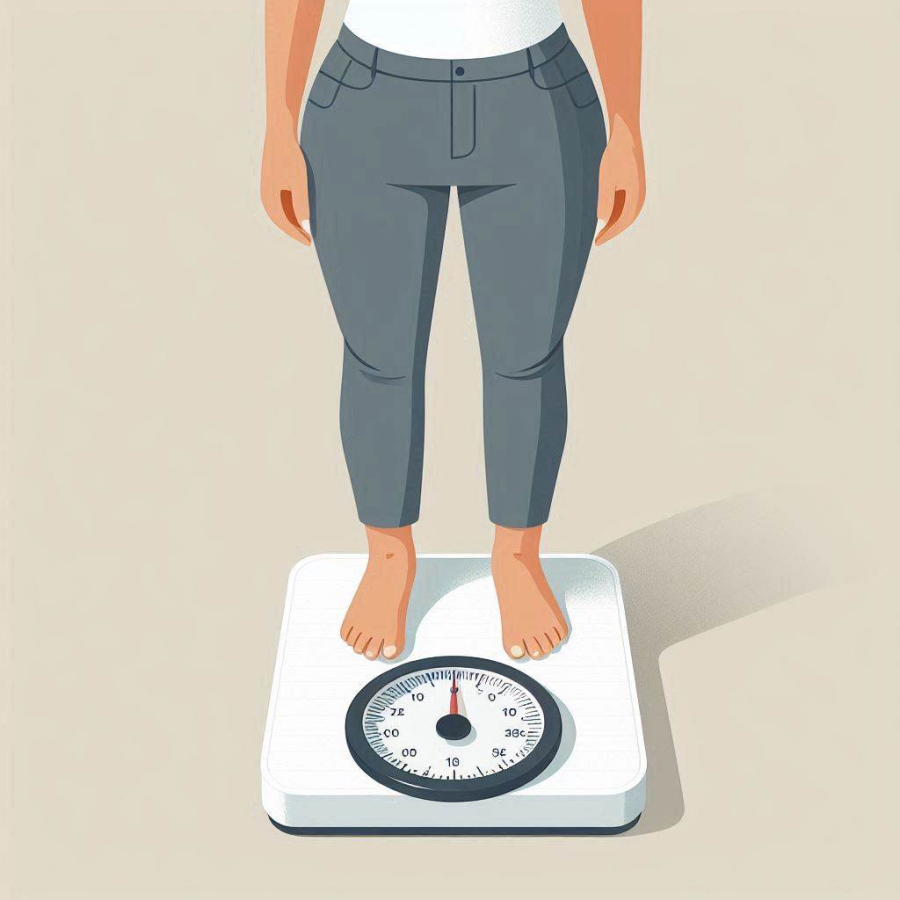Why Do Many People Tend to Gain Weight After Tết?
During Tết, dining tables are often filled with delicious and nutritious dishes. Traditional foods such as bánh chưng, bánh tét, thịt kho hột vịt, giò chả, and lạp xưởng are typically rich in carbohydrates and fats. In addition, sweets, candies, and soft drinks also contribute to increased sugar and calorie intake.
Indulging in these foods without control during the festive season can easily lead to a surplus of calories and fat accumulation in the body. On top of that, the lack of a stable eating and resting schedule, along with family gatherings, movie nights, and attending parties, significantly reduce physical activity levels. This results in increased calorie consumption and decreased mobility. The habits of late-night snacking, continuous grazing, and alcohol consumption disrupt the body’s biological clock, affecting metabolism. These factors create the perfect environment for the body to store excess fat, leading to rapid weight gain.

Late-night snacking, continuous grazing, and alcohol consumption disrupt the body’s biological clock, affecting metabolism
How to Control Your Weight During and After Tết
With such an unbalanced diet and physical activity, weight loss and maintaining a healthy weight become extremely important for many people after Tết. A study published in the Obesity journal revealed that daily weight monitoring helps individuals not only control their weight but also effectively supports weight loss and prevents weight regain after successful weight loss.
The study found that individuals who weighed themselves daily lost, on average, 3% of their body weight after a year, while those who did not practice daily weighing showed no significant weight changes. This proves that frequent weight monitoring helps maintain motivation and allows for timely adjustments to diet and exercise routines.
David Levitsky, a professor of Nutrition and Psychology at Cornell University and the researcher behind this weight control study, shares: “Daily weighing helps maintain reasonable eating and living habits and motivates individuals in their journey to maintain their figure and lose weight.”

Individuals who weighed themselves daily lost an average of 3% of their body weight after a year
What Are the Benefits of Daily Weighing?
Understand Your Eating Habits and Lifestyle
While small daily weight fluctuations may not significantly affect your body, if left unnoticed, they can lead to uncontrolled weight gain. By weighing yourself daily, you can easily notice variations in your body weight. This helps you evaluate the effectiveness of your nutrition and exercise routines and identify unhealthy habits that may cause weight regain.
For example, during Tết, you may have developed unhealthy eating habits such as consuming excessive sweets, fried foods, or soft drinks. While these foods may taste good, they can quickly lead to weight gain. Daily weighing will help you become aware of these changes and self-regulate your diet to make healthier choices going forward.
Daily Weighing Helps Maintain Motivation
One of the reasons why daily weighing is an effective habit for weight control is that it encourages individuals to maintain a healthy diet and lifestyle. For instance, if you notice weight loss after a week of healthy eating and regular exercise, this will boost your motivation and encourage you to continue these positive habits. In this way, daily weighing becomes not just about monitoring results but also a useful tool to support a healthy and disciplined lifestyle.

Daily weighing encourages a healthy diet and lifestyle
Identify Health Issues
Periodic weight monitoring not only helps manage your weight but also provides insights into your overall health. Weight gain is not always solely due to overeating; it can be related to various factors such as hormones, underlying health conditions, or sleep issues.
In reality, body weight is just one indicator of overall health, but consistent monitoring enables you to make necessary adjustments to improve or maintain your health and avoid a decline without realizing it. Weight reflects both body fat and overall health status. Daily weight checks help identify unusual changes early on. For instance, if you notice rapid weight gain, it could indicate health issues such as water retention, metabolic disorders, or cardiovascular problems.
Being aware of your health status through daily weight recordings allows you to proactively adjust your diet, exercise, and rest, thereby maintaining a stable weight and optimal health. Additionally, nutritionists and fitness trainers also recommend combining weight monitoring with measurements of other body composition indicators such as body fat percentage and muscle mass for a more comprehensive understanding of your health.
To effectively monitor your weight, consider the following steps:
– Choose a consistent time: Ideally, weigh yourself at a fixed time every day, preferably in the morning, right after waking up and before breakfast. This minimizes the impact of factors such as food, drinks, or clothing.
– Use a digital scale: Digital scales provide accurate data, making it easier to track and compare daily changes.
– Don’t stress over minor fluctuations: Weight can vary slightly due to various factors such as body water content, food intake, or hormonal changes. So, if you notice minor changes over a short period, rest assured and don’t worry.



































